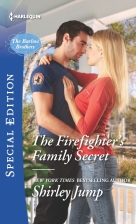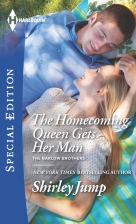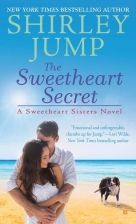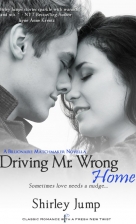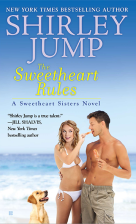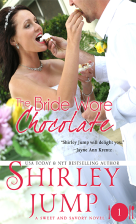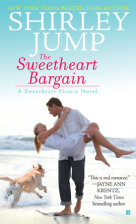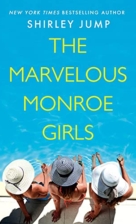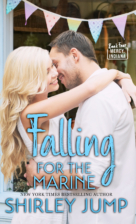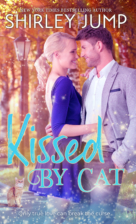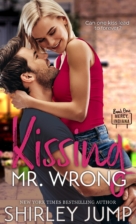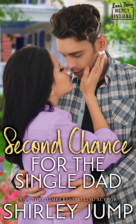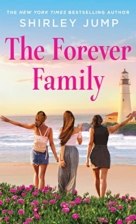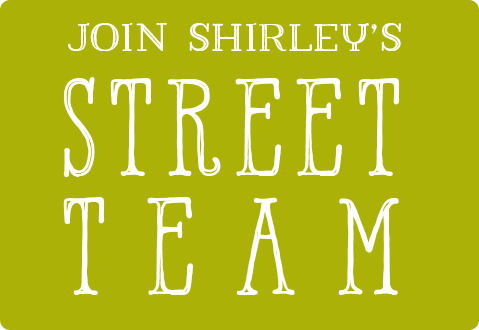This article originally appeared in The Rock
Copyright 2001 by Shirley Jump
www.shirleyjump.com
Have you ever watched Angelina Jolie act? If not, go see “Girl, Interrupted” or “Gia.” There’s a woman who truly knows how to let go, to slip into her roles with a ferocity that’s almost primal. She truly becomes the other person, edged with their manias. Or read an author who has the ability to rip at your heartstrings? Kat Martin, for instance; or tease your funny bone? Jenny Crusie comes to mind. Or someone who does all that in a different manner, with poetic words that amaze and stun you? Try any of Stephen King’s more literary masterpieces or Rebecca Reisert’s The Third Witch. All are brilliant fiction, masterful in language and evocative of all emotions.
How do these people do it? By letting go. Forgetting about the rules and restrictions of writing, and instead answering their true call as authors to wring every last drop of humanness out of each word. They kick it up a notch, as Emeril would say, and take their novels to the next level.
Learning to let go is not easy. Many of us are at our truest in conversations or e-mails. That’s where our human connection, sense of humor and true feelings become evident. But stick us in front of a blank page and give us all kinds of regulations about word count and margin measurements, and our true selves freeze. We become locked in a box that we think publishing has designed, unwilling to step outside that comfort zone for fear we will create something un-sellable. Or worse, be forced to delve within ourselves, to draw blood with our words and thus, expose parts of our own heart to readers.
But when we do all that, when we honestly let go and write from our souls, oh, the powerful connections we can make. Learning to do that, however, is difficult, worse than ripping off those Super Glue Band-Aids the nurse gives you after a blood test, worse than taking off all your clothes and running naked through your neighborhood (not that I have done that, mind you. It’s far easier, and more legal, to get naked on the page ;-).
I’ve been writing nearly my whole life. I found, however, that my journalism background made me clam up when it came to the page. My instinct, honed by years of just reporting the facts, was to keep emotion and myself out of my writing. It took me a while to learn how to let go. I’ve included a few tips below, if you’re in the same boat:
Try other types of writing: You may not be good at writing mysteries and may find your true self in women’s fiction or romance. The point is to explore, with everything from dramatic tales to comedies, until you hit your stride and feel like the writing is the best reflection of you as an artist.
Take chances: Explore issues that are scary. Tackle the things that make you cry. In his book, Writing the Breakout Novel, Donald Maas says the key to a book that really sings is hitting the triggers that motivate you. In short, if it’s something that gets your dander up or inspires you, your writing will show the difference. You have to be brave to let go in your writing. It’s like holding onto the bar on a roller coaster. Once you get up the guts to let go and wave your hands, you realize the fear held you back from fully experiencing the ride.
Experiment with words: “Beautiful writing” is what my critique partner calls it. When you reach to express yourself, you often get a better result than if you called on common adjectives and tired nouns. In “Dreamcatcher,” Stephen King describes the beginning of a snowstorm in a simple turn of phrase: “The first snowflakes skated down the sky.” Think about that does that accurately depict the lazy path those first fat flakes make? It does. That’s because he reached beyond the easy, close at hand descriptions and let his mind search for something better.
In short, letting go in your writing means knowing who you are as a writer and why you are driven to sit down at that computer or pad of paper and create. You have to first let go of your own preconceived notions and then look deep inside to find the true you. Once you do, your writing will come alive and your words will take the reader on a memorable journey.




